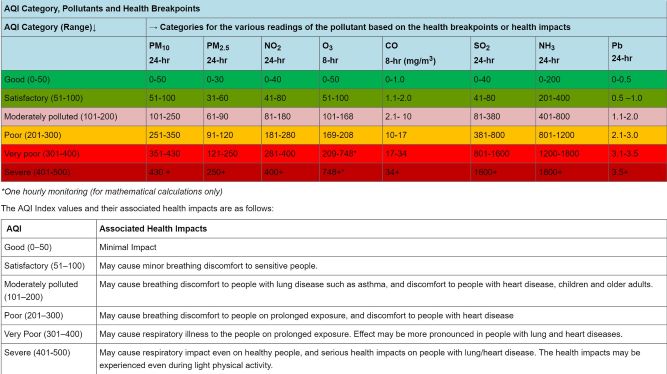

Running Away from Pollution
The National Green Tribunal (NGT) has directed six states’ chief secretaries to submit action plans by April 30, for bringing air quality standards within the prescribed norms. A bench headed by NGT Chairperson Justice Adarsh Kumar Goel ordered the chief secretaries of Assam, Jharkhand, Maharashtra, Punjab, Uttarakhand, and Nagaland governments to submit their plan within the stipulated time.
“We direct chief secretaries of the states in respect of which action plans have not been filed to forthwith furnish such action plans.”
The bench, also comprised of Justices S P Wangdi and K Ramakrishnan, further added that failure to do so by the states would make them liable to pay environment compensation of Rs. 1 crore each. If the action plans are found to be deficient and deficiencies are not removed till April 30, 2019, they will be liable to pay Rs. 25 lakh each and the timeline for execution of the action plans is six months from the date their finalisation, the bench said.
NGT bench has asked the 6 states to make budgetary provision ready for the execution of these plans. The tribunal warned that if action plans are not executed within the specified timeline, the defaulting states will be liable to pay environmental compensation and may also be required to furnish performance guarantee for execution of plans in the extended timeline as per recommendations received from the Central Pollution Control Board (CPCB).
The NGT said, “The CPCB is directed to update the number of cities. If on parameters applied, there are other cities, not included in the list of 102, such cities may be also included.”


The direction has come after the CPCB informed NGT that out of 102 cities, an action plan has been received from 83 cities while 19 have not submitted the plan. The NGT will take up the matter for further consideration on July 19. Concerned over the threat posed to limited natural resources due to their overuse, the tribunal has directed for assessment of carrying capacity of 102 cities, including Delhi, where air quality does not meet the National Ambient Air Quality Standards (NAAQS).
[related_post]
The concept of “carrying capacity” addresses the question as to how many people can be permitted into any area without the risk of degrading the environment there. The Bench had said the Ministry of Urban Development in coordination with the Central Pollution Control Board (CPCB), Ministry of Transport, authorities such as Planning Commission and states may carry out such study with the assistance of experts in the field.
The green panel pinpointed that it is undisputed that air pollution is a matter of serious concern and a large number of deaths take place every year in the country on account of air pollution. The NGT had said Delhi is over-polluted and figures quite high in the ranking of most polluted cities and there is no study about the capacity of the city with respect to the extent of the population which can be accommodated and a number of vehicles which can be handled by its roads.
1. The mandate for blending Compressed Biogas (CBG) with natural gas has come into effect…
Andhra Pradesh is striving towards greening its energy sector with quite some speed. In a…
With an objective to bolster India’s green energy goals, a Tripartite Agreement has been signed…
The Union MNRE Minister Pralhad Joshi launched the Green Hydrogen Certification Scheme of India (GHCI)…
India’s energy conglomerate Bharat Petroleum Corporation Limited (BPCL) has commissioned a 5MW green hydrogen plant…
In a historical development, the European Space Agency (ESA) has successfully launched its pioneering ‘Biomass’…